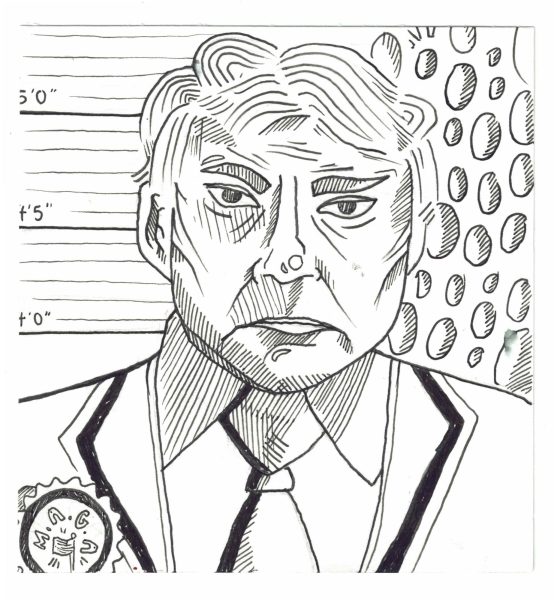Biden Seeks to Restore Qualification to the White House with Nominated Cabinet Leaders
December 26, 2020
After four years of dramatic changes to the presidential administration both in replacements and the full elimination of certain positions, President-Elect Joe Biden’s nominations for the top positions of his cabinet were highly anticipated. “It’s a team that reflects the fact that America is back,” Biden explained during his first announcement, “[We are] ready to lead the world, not retreat from it.”
Standouts within his nominations include Linda Thomas-Greenfield as United Nations Ambassador, Jake Sullivan as National Security Advisor, and former Secretary of State John Kerry as Climate Czar, a new position to demonstrate Biden’s commitment to fighting climate change. Nominated amidst newfound celebrity and name recognition, Dr. Anthony Fauci is to serve as Chief Medical Advisor on COVID-19 alongside California Attorney General Xavier Becerra, nominated as Secretary of Health and Human Services. Most notable, however, are Biden’s nominations for Treasury Secretary and Secretary of State, Janet Yellen and Antony Blinken respectively.
Yellen, who as Treasury Secretary would replace former Wall Street executive and film producer Steven Mnuchin, is likely to be confirmed by the Senate. When nominated under the Obama Administration to be the Chairperson of the Federal Reserve Bank (the first woman to assume the role), Yellen was easily able to be confirmed, voted in by many representatives who are still in the position to confirm her today. Her previously tested popularity in the Senate made her a safe choice as Biden’s nomination and demonstrates careful consideration on the part of Biden’s team.
In 2014, just as she was confirmed as Federal Reserve Chair, Yellen delivered a speech at the Federal Reserve Bank of Boston, emphasizing the troubling divide she was noticing in the economy. “The extent of and continuing increase in inequality in the United States greatly concern me,” Yellen expressed, “I think it is appropriate to ask whether this trend is compatible with values rooted in our nation’s history, among them the high-value Americans have traditionally placed on equality of opportunity.”
Throughout her career, Yellen has made a point of advocating for labor workers and the working class, and will likely push for pandemic relief policies that support state and local governments as they work to recover their individual economies. Even if Yellen is easily confirmed, policies such as these will be difficult to realize in a Republican-controlled Senate, as she will struggle to gain the support she needs. The results of the runoff Senate elections in Georgia on January 5th will be critical for Yellen to successfully achieve any legislation on her agenda.
Both Yellen and Blinken are anticipated to move the country in a drastically different direction from their counterparts within the Trump administration.
Federal Reserve correspondent Jeanna Smialek told the New York Times, “[Yellen] has spent her time in economic policy trying to carve out space where she puts training wheels on capitalism, makes it safer for households and for businesses. Treasury Secretary will be an interesting perch from which she can further those goals.”
Just as Yellen will be handed an economy in critical condition, Antony Blinken, Biden’s intended Secretary of State, will have a unique role in navigating foreign policy at an unprecedented geopolitical moment. Blinken served as Biden’s National Security Advisor during his vice presidency, and later as Deputy National Security Advisor and Deputy Secretary of State. Biden and Blinken worked closely together, gaining an understanding of each other’s ideas. National Security Expert David Sanger described to the New York Times, “The most powerful secretaries of state in recent times have been those who no one doubted had a relationship with the President that was so close that when the secretary spoke, it was like the president was speaking … [Blinken] has been with [Biden] for twenty years and can finish his sentences.”
In a July interview with the Hudson Institute, Blinken expressed a desire to rejoin both the Paris Accord and to ally with the North Atlantic Treaty Organization, should Biden be elected. He told interviewer and foreign policy professor Walter Russell Mead, “The strength of our democracy at home is directly tied to our ability to be a force for progress, to mobilize collective action around the world. Here … my concern is that we’ve seen a daily assault on democracy under this administration, which has tarnished our own ability to lead.”
Both Yellen and Blinken are anticipated to move the country in a drastically different direction from their counterparts within the Trump administration, Yellen with a focus on COVID-19 relief and Blinken surging to reconnect with countries and ambassadors cut off by Trump’s famous rhetoric of “America First.” With the still unpredictable partisan leanings of Congress, the degree to which the Secretaries will be able to institute change is still uncertain, but in any outcome, the United States can expect a decrease in turbulence as Biden’s team strives to make America… great again; at least in their eyes.











